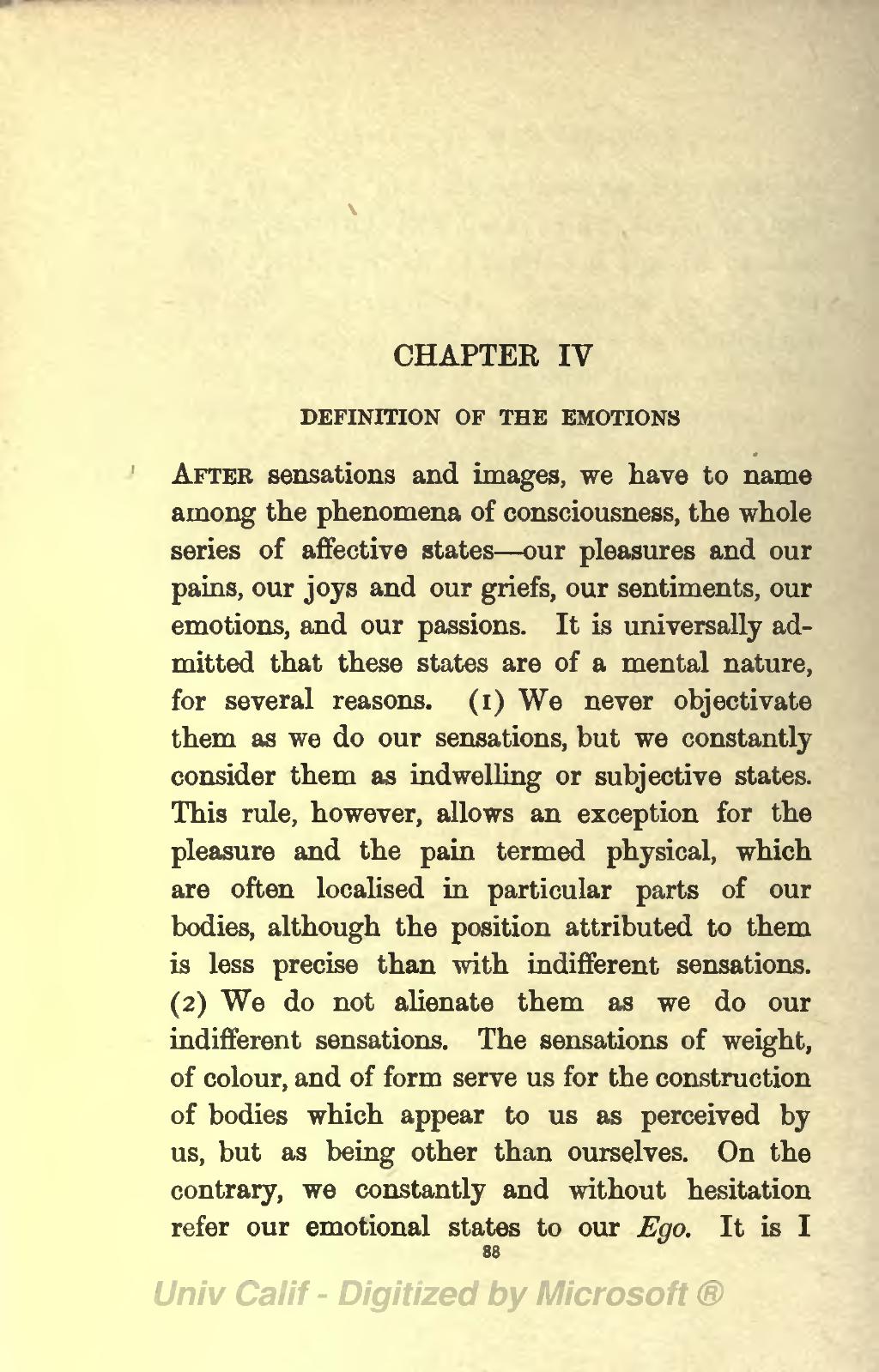CHAPTER IV
After sensations and images, we have to name among the phenomena of consciousness, the whole series of affective states—our pleasures and our pains, our joys and our griefs, our sentiments, our emotions, and our passions. It is universally admitted that these states are of a mental nature, for several reasons. (1) We never objectivate them as we do our sensations, but we constantly consider them as indwelling or subjective states. This rule, however, allows an exception for the pleasure and the pain termed physical, which are often localised in particular parts of our bodies, although the position attributed to them is less precise than with indifferent sensations. (2) We do not alienate them as we do our indifferent sensations. The sensations of weight, of colour, and of form serve us for the construction of bodies which appear to us as perceived by us, but as being other than ourselves. On the contrary, we constantly and without hesitation refer our emotional states to our Ego. It is I
